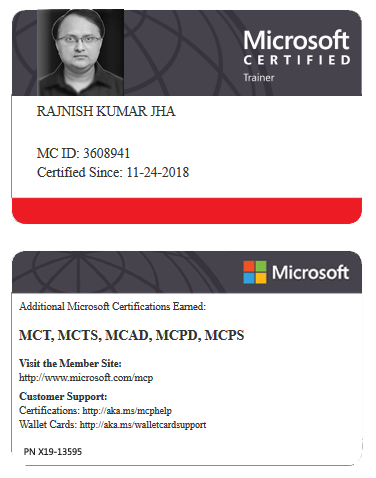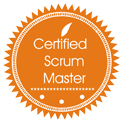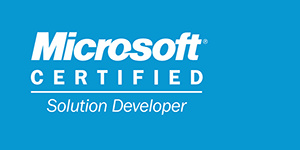-

Configuring Azure DevOps Notifications
Configuring Azure DevOps Notifications Azure DevOps provides various types of notifications to ensure teams stay informed about changes in work items, code, builds, releases, and more. Notifications can be tailored to individual users, teams, projects, or applied globally across your organization. 1. Types of Notifications… [ Read More ]
-

Comprehensive guide on the Service Hooks in Azure DevOps
Comprehensive guide on the Service Hooks in Azure DevOps Azure DevOps provides Service Hooks that allow seamless integration with various services across different categories, including Build and Release, Collaborate, Customer Support, Plan and Track, and Integrate. These hooks help automate workflows and streamline processes by… [ Read More ]
-

Exploring Service Hooks in Azure DevOps
Exploring Service Hooks in Azure DevOps Service Hooks in Azure DevOps allow you to integrate with external services to automate actions or receive notifications when specific events occur. This helps create a more streamlined DevOps workflow by connecting Azure DevOps with tools like Slack, GitHub,… [ Read More ]
-

Exploring Events and Notifications in Azure DevOps
Exploring Events and Notifications in Azure DevOps Events in Azure DevOps trigger actions when specific conditions are met, while Notifications allow you to receive updates based on those events. Together, they help automate and monitor deployments, builds, and other DevOps processes. 1. Events in Azure… [ Read More ]
-

Automating inspection of health in Azure DevOps
Automating inspection of health in Azure DevOps Automating the inspection of health in Azure DevOps involves setting up processes to monitor the status of deployments, trigger actions based on events, and ensure that systems are functioning as expected. This can include using features like Release… [ Read More ]
-

Comprehensive guide on the Deployment Jobs strategies in Azure DevOps multi-stage YAML
Comprehensive guide on the Deployment Jobs strategies in Azure DevOps multi-stage YAML In Azure DevOps Multi-stage YAML pipelines, various deployment strategies can be employed to optimize the deployment process. Below is an exploration of RunOnce, Rolling, and Canary deployment strategies, along with a specific example… [ Read More ]
-

Exploring Deployment Jobs strategies in Azure DevOps multi-stage YAML – Canary for AKS example
Exploring Deployment Jobs strategies in Azure DevOps multi-stage YAML – Canary for AKS example A Canary Deployment strategy for Azure Kubernetes Service (AKS) involves deploying updates to a small set of Kubernetes pods or services to validate changes before scaling them across the entire AKS… [ Read More ]
-

Exploring Deployment Jobs strategies in Azure DevOps multi-stage YAML – Canary Deployment
Exploring Deployment Jobs strategies in Azure DevOps multi-stage YAML – Canary Deployment A Canary Deployment is a progressive deployment strategy where a small subset of users or a small portion of resources are used to validate updates in a production-like environment before fully rolling out… [ Read More ]
-

Exploring Deployment Jobs strategies in Azure DevOps multi-stage YAML – Rolling Deployment
Exploring Deployment Jobs strategies in Azure DevOps multi-stage YAML – Rolling Deployment A Rolling Deployment strategy in Azure DevOps involves deploying updates incrementally to one environment at a time, moving from lower environments to higher environments (e.g., Development → Staging → Production). This allows for… [ Read More ]
-

Exploring Deployment Jobs strategies in Azure DevOps multi-stage YAML – RunOnce
Exploring Deployment Jobs strategies in Azure DevOps multi-stage YAML – RunOnce In Azure DevOps Multi-stage YAML pipelines, the RunOnce deployment job strategy is used when a job should run only once, regardless of how many environments or stages are involved. This strategy is useful for… [ Read More ]
DevOps, Cloud, Azure resources & blog
Category: Azure DevOps
All resources required to kick start your DevOps journey on Azure
Featured Courses

Rajnish Kumar Jha
MCT, MCSA, MCSE, MCAD, MCPD, MCTS, MCSD
My name is Rajnish Kumar Jha. I am Technical architect on Azure Cloud and .NET since 21+ years. I’ve worked for pioneer companies and as freelance trainer/consultant helping my clients to achieve their IT goals.
I find blogging, a great way to share back what I’ve learned all through my professional journey. You are welcome to connect or share feedback/suggestion here or through an email.
My MCT card (Microsoft)

My Certifications












Popular Posts
Stay Connected
Unlock the full potential of Azure Cloud with me
– Your trusted guide to Azure mastery!
SUBSCRIBE
My newsletter for exclusive content and offers. Type email and hit Enter.
No spam ever. Unsubscribe anytime.
Read the Privacy Policy.





